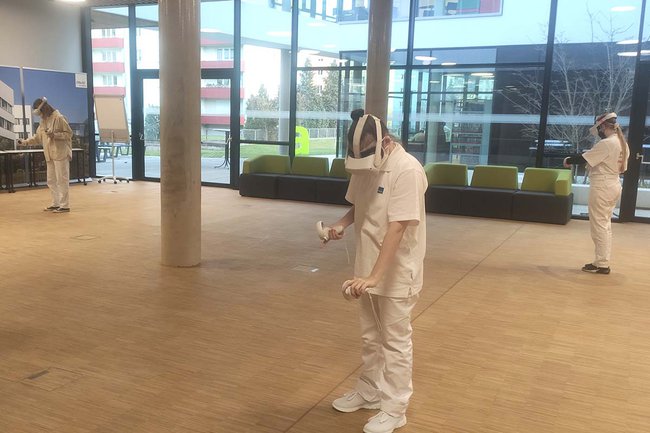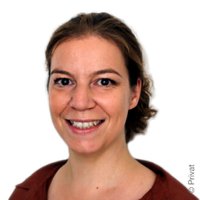Mixed Reality: Teaching, Organisation and Research
St. Pölten UAS Promotes the Use of Augmented, Virtual, and Mixed Reality

In the project MIRACLE (Mixed Reality for Work, Collaboration, and Teaching), lecturers and researchers at the St. Pölten University of Applied Sciences developed a strategy for the use of augmented, virtual, and mixed reality (MR) in the areas of teaching, organisation, and research and knowledge transfer.
Current advances in technologies such as mixed reality (MR) or artificial intelligence (AI) are changing the way we learn and acquire new skills. The St. Pölten University of Applied Sciences promotes the use of new technologies and would like to anchor this especially in the areas of teaching and organisation as well as research and knowledge transfer. The goal of the project MIRACLE was to develop innovative usage scenarios for mixed reality and to make these technologies accessible in the respective areas.
Lecturers, students, researchers, and general staff should be able to take advantage of the hardware and software solutions, for example in the area of New Work/Remote Collaboration – created by the applicable requirements during the COVID-19 pandemic – in international exchanges as well as in teaching, in order to convey teaching content to students through virtual hands-on experiences.
“A longer-term goal is to support higher education institutions and teaching staff in transforming traditional teaching models (e.g., from lecture hall-based, guided instruction to authentic learning experiences or learning environments that can be (co-)designed by students). In the longer term, such learning environments could also be further developed in collaborations in the (school) education and outreach sector”, emphasises Thomas Moser, MIRACLE project manager and head of the Institute of Creative\Media/Technologies.
The St. Pölten UAS has firmly anchored the use of MR technologies in teaching in the new Service and Competence Centre for Teaching/Learning Development and Educational Offers (LEARN).
“Digitally supported teaching and learning resources are oriented toward the living environment of students and enable teaching and learning processes in an accessible manner. This makes them an indispensable part of higher education teaching. Targeted accompanying research helps to find out how mixed reality can promote learning outcomes. The use of digital or virtual teaching and learning resources must also consider didactical aspects”, emphasises Lisa David, head of LEARN.
Mixed Reality in Teaching
One of the most important project goals of MIRACLE was the cross-departmental cooperation concerning the use of mixed reality in existing courses. Thomas Moser’s team developed teaching and learning scenarios and conducted user tests with teaching staff and students. With the Department of Health Sciences, an anatomy and a nursing learning tool was tested. With the Department of Social Work, an interactive 360° video application was developed for the training of challenging conversation situations, e.g., the delivery of bad news.
Interdisciplinary Research Projects
In the area of research, the following three research projects, among others, were implemented by MIRACLE during the project period.
- Industrial Manufacturing Process and Collaboration Tools for Sustainable XR: Researchers at the Institute of Creative\Media/Technologies investigated the potential uses of XR technologies to learn new skills and optimise processes.
- Immersive Media Lab: The researchers of the Institute of Creative\Media/Technologies combine know-how on current technological developments in the fields of augmented and virtual reality with interdisciplinary research (applications in art, business, and science as well as in the health sector) on immersive storytelling.
- VeRgonomiX: Use of virtual reality for the ergonomic design of workplaces as well as for consulting and training regarding ergonomic workflows. Researchers from the Center for Digital Health and Social Innovation, the Institute of Creative\Media/Technologies, and the Institute of Health Sciences were involved.
Exchange at European Level
For the project, cooperation was established with different European universities. With Vidzeme UAS in Latvia, a partner university of the European University Alliance E³UDRES², a joint European master degree programme is being developed that focuses on new XR-based learning strategies and prepares graduates to develop innovative products and applications for future markets

Dr. Lisa David
Head ofService and Competence Centre for Teaching/Learning Development and Educational Offers (LEARN)